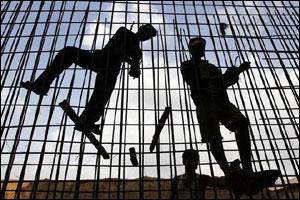Companies engaged in infrastructure development might soon lose profit-linked tax benefits. In Budget 2013-14, the finance ministry is considering doing away with Section 80-IA of the Income Tax Ac t, under which the government is expected to have forgone around 19 per cent of the total revenues that could not be collected on account of various deductions given to the corporate sector in 2011-12.
t, under which the government is expected to have forgone around 19 per cent of the total revenues that could not be collected on account of various deductions given to the corporate sector in 2011-12.
The government might replace profit-linked incentives with investment-linked ones to encourage investment and propel economic growth.
“The government may withdraw Section 80-IA in the Budget,” a finance ministry official, asking not to be named due to the sensitivity of the matter, told Business Standard.
For 2011-12, the projected revenue foregone under this head was a little over Rs 15,000 crore (Rs 150 billion) - about 19 per cent of the Rs 79,173 crore (Rs 791.73 billion) that could not come to the coffers due to various profit-linked incentives given to India Inc. However, of this total, Rs 27,881 crore (Rs 278.81 billion) was projected to come back to the government in the form of minimum alternate tax, so the total net loss could be Rs 51,292 crore (Rs 512.92 billion).
Section 80-IA provides tax holiday for 10 years in a row in respect of profits and gains from industrial undertakings or enterprises engaged in development of infra, such as highways, ports, urban facilities, water-treatment plant, natural gas, hospital and hotels. Besides, infrastructure development in SEZs, telecom, power, etc, get benefits in the first 15-20 years of operations. Power had a sunset clause that was extended last year and might get extended for another year.
Officials also said that profit-linked deductions were misused because of which there were litigation with assessees.
Assessing officers feel companies sometimes earn more than ordinary profits by selling to related parties at a higher price than that charged from unrelated parties. It is also felt some companies divert profits from the taxed segment to the exempt segment for availing of tax benefits.
“Perhaps, the government is trying to approach it not just from a tax perspective but also from an investment point of view. A shift from profit-linked incentives to investment-linked incentives will trigger investment cycle,” said Vishal Shah, executive director, PricewaterhouseCoopers.
In this sense, the replacement would also lead to saving of revenues for the government, which is trying to cut its fiscal deficit.
However, the profit-linked incentives already provided might be grandfathered. This means, only new units would attract the fresh provisions.
The Direct Taxes Code Bill had also signalled a shift to capital-linked incentives, while grandfathering the existing benefits.
Tax experts, however, say an exemption for 10-15 years under profit-linked mechanism is more beneficial, as infra projects take six to eight years to break even - sometimes even more, depending on the kind of project.
“If benefits under Section 80IA are taken away, it will increase the cost of infrastructure investment in terms of tax incentive being taken away, particularly in the case of public-private partnership projects,” says Satish Aggarwal, partner, Ernst & Young.
Shah, however, says if profit-linked incentives are replaced with capital-linked benefits, it will not impact the cost of investment, but IRR (internal rate of return) payback period could come down to some extent.
Under the existing provisions of Section 35AD of the Income Tax Act, investment-linked tax incentive is provided by the way of allowing 100 per cent deduction in respect of any expenditure of capital nature (other than land, goodwill and financial instrument), incurred wholly and exclusively for the purposes of the “specified business”.











 © 2025
© 2025